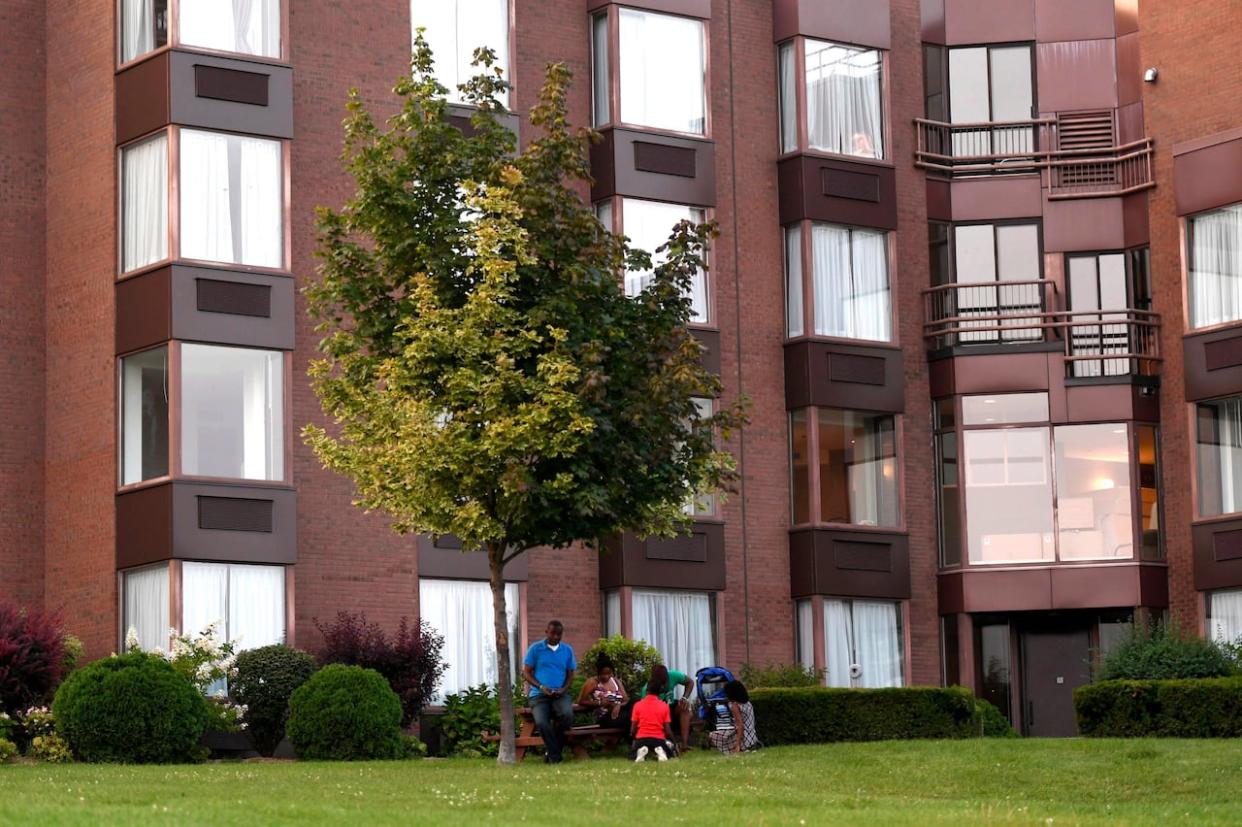Looming closure of Cornwall housing hub leaves asylum seekers with more uncertainty

More than 500 asylum seekers living in transitional housing in Cornwall, Ont., face an even more uncertain future as the federally overseen program prepares to fold at the end of the month.
In the fall of 2022, Immigration, Refugees and Citizenship Canada (IRCC) began providing temporary housing to refugee claimants at a large complex known as the DEV Hotel and Conference Centre. DEV operates the housing hub under contract to IRCC.
Last week, the City of Cornwall, which has struggled in recent years with housing issues of its own, learned IRCC is not renewing its contract with the conference centre, throwing the future living situations of 537 people into question.
"I was just shocked because it is such a large number of folks," said Taylor Seguin, executive director of Centre 105, a daytime drop-in centre in Cornwall that has also been informed of the situation.
IRCC declined to be interviewed. In an emailed statement, the federal department confirmed the contract will end "as planned" on July 31, and said it stressed the temporary nature of such arrangements to residents.
CBC has asked why the contract isn't being renewed.
The DEV Centre, through a PR firm, declined to comment, noting IRCC is solely responsible for managing the program.
Began as 'extraordinary measure'
IRCC began offering accommodation to asylum seekers who lacked a suitable quarantine plan "as an extraordinary measure" during the pandemic.
The practice was continued due to housing shortages and affordability challenges, IRCC said in its statement.
In addition to housing, the centre in Cornwall has helped people find jobs and more permanent housing. Residents have been learning English as a second language there, and children attend school at the site.
"Those poor children don't get to go to school," said Martha Woods, executive director of the Eastern Ontario Training Board (EOTB), a Cornwall-based agency helping newcomers to Canada.
Citing privacy concerns, IRCC would not say what portion of the residents is made up of families.
According to Woods, 220 of the DEV Centre's 537 residents are employed.
"We would like to see them continue working and living in our community," the EOTB said in an emailed statement. "We are confident IRCC will not leave these individuals homeless."
IRCC said it's doing its best to prevent that. IRCC staff, the DEV Centre, provincially funded service organizations and the City of Cornwall are working closely with residents to find them housing.
If no options emerge despite these "significant efforts," IRCC will offer people transfers to another location within Ontario.
"There is no simple solution but we are confident that, with everyone at the table, we can implement long-term, sustainable, and compassionate measures," the department said.
It's unclear how many of the 537 residents may need a transfer.
Wider impact feared
Given the current housing challenges in Cornwall, the EOTB assumes many individuals and families will have to leave the area in hopes of finding appropriate, affordable housing and employment elsewhere, according to an email from the training board to local groups on Tuesday.
Even so, the EOTB appealed to those local organizations for help.
"At this time finding ... housing is the main priority," the training board wrote.
Some local residents have already stepped up to offer rooms, Woods said.
But the potential wider ramifications of losing so many people, including employed residents, is "scary," she added.
"That's going to have a direct effect on our businesses and our community as a whole."


